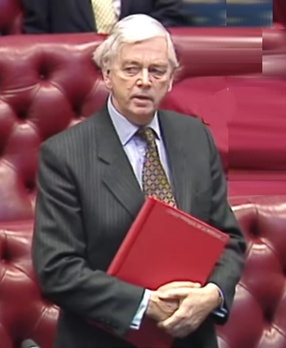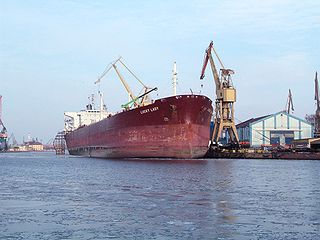Advice
Giving the advice of the Privy Council, Lord Nicholls held it was the dishonest assistant's state of mind which matters. Knowledge depends on a ‘gradually darkening spectrum’. Therefore, the test for being liable in assisting breach of trust must depend on dishonesty, which is objective. It is irrelevant what the primary trustee's state of mind is, if the assistant is himself dishonest.
Whatever may be the position in some criminal or other contexts (see, for instance, R v Ghosh [1982] QB 1053), in the context of the accessory liability principle acting dishonestly, or with a lack of probity, which is synonymous, means simply not acting as an honest person would in the circumstances. This is an objective standard. At first sight this may seem surprising. Honesty has a connotation of subjectivity, as distinct from the objectivity of negligence. Honesty, indeed, does have a strong subjective element in that it is a description of a type of conduct assessed in the light of what a person actually knew at the time, as distinct from what a reasonable person would have known or appreciated. Further, honesty and its counterpart dishonesty are mostly concerned with advertent conduct, not inadvertent conduct. Carelessness is not dishonesty. Thus for the most part dishonesty is to be equated with conscious impropriety. However, these subjective characteristics of honesty do not mean that individuals are free to set their own standards of honesty in particular circumstances. The standard of what constitutes honest conduct is not subjective. Honesty is not an optional scale, with higher or lower values according to the moral standards of each individual. If a person knowingly appropriates another's property, he will not escape a finding of dishonesty simply because he sees nothing wrong in such behaviour.
Lord Goff, Lord Ackner, Lord Steyn and Sir John May concurred.
Dishonesty is acting without honesty. The term describes cheating, deficient probity, lying, deliberate withholding of information, being deliberately deceptive, or showing knavishness, perfidiousness, corruption, treachery, or deficient integrity.

Donald James Nicholls, Baron Nicholls of Birkenhead, was a British barrister who became a Law Lord.
Duress in English law is a complete common law defence, operating in favour of those who commit crimes because they are forced or compelled to do so by the circumstances, or the threats of another. The doctrine arises not only in criminal law but also in civil law, where it is relevant to contract law and trusts law.

The Pan-Borneo Highway including the sections now known as the Pan Borneo Expressway, is a controlled-access highway on Borneo Island, connecting two Malaysian states, Sabah and Sarawak, with Brunei. The length of the entire highway is 2,083 kilometres (1,294 mi) for the Malaysian section, 168 kilometres (104 mi) for the Bruneian section.

Overseas Tankship (UK) Ltd v Morts Dock and Engineering Co Ltd, commonly known as Wagon Mound , is a landmark tort law case, which imposed a remoteness rule for causation in negligence. The Privy Council held that a party can be held liable only for loss that was reasonably foreseeable. Contributory negligence on the part of the dock owners was also relevant in the decision, and was essential to the outcome, although not central to this case's legal significance.

English trust law concerns the protection of assets, usually when they are held by one party for another's benefit. Trusts were a creation of the English law of property and obligations, and share a subsequent history with countries across the Commonwealth and the United States. Trusts developed when claimants in property disputes were dissatisfied with the common law courts and petitioned the King for a just and equitable result. On the King's behalf, the Lord Chancellor developed a parallel justice system in the Court of Chancery, commonly referred as equity. Historically, trusts have mostly been used where people have left money in a will, or created family settlements, charities, or some types of business venture. After the Judicature Act 1873, England's courts of equity and common law were merged, and equitable principles took precedence. Today, trusts play an important role in financial investment, especially in unit trusts and in pension trusts. Although people are generally free to set the terms of trusts in any way they like, there is a growing body of legislation to protect beneficiaries or regulate the trust relationship, including the Trustee Act 1925, Trustee Investments Act 1961, Recognition of Trusts Act 1987, Financial Services and Markets Act 2000, Trustee Act 2000, Pensions Act 1995, Pensions Act 2004 and Charities Act 2011.

R v Ghosh [1982] EWCA Crim 2 is an English criminal law case setting out a test for dishonest conduct which was relevant as to many offences worded as doing an act dishonestly, such as deception, as theft, as mainstream types of fraud, and as benefits fraud. The test has been revised to an objective test, with rare exceptions, by the Supreme Court in Ivey v Genting Casinos [2017] UKSC 67.
Interpreting contracts in English law is an area of English contract law, which concerns how the courts decide what an agreement means. It is settled law that the process is based on the objective view of a reasonable person, given the context in which the contracting parties made their agreement. This approach marks a break with previous a more rigid modes of interpretation before the 1970s, where courts paid closer attention to the formal expression of the parties' intentions and took more of a literal view of what they had said.
Dishonest assistance, or knowing assistance, is a type of third party liability under English trust law. It is usually seen as one of two liabilities established in Barnes v Addy, the other one being knowing receipt. To be liable for dishonest assistance, there must be a breach of trust or fiduciary duty by someone other than the defendant, the defendant must have helped that person in the breach, and the defendant must have a dishonest state of mind. The liability itself is well established, but the mental element of dishonesty is subject to considerable controversy which sprang from the House of Lords case Twinsectra Ltd v Yardley.

Twinsectra Ltd v Yardley[2002] UKHL 12 is a leading case in English trusts law. It provides authoritative rulings in the areas of Quistclose trusts and dishonest assistance.

Knowing receipt is an English trusts law doctrine for imposing liability on a person who has received property that belongs to a trust, or which was held by a fiduciary, having known that the property was given to them in breach of trust. To be liable for knowing receipt, the claimant must show, first, a disposal of his trust assets in breach of fiduciary duty; second, the beneficial receipt by the defendant of assets which are traceable as representing the assets of the claimant; and third, knowledge on the part of the defendant that the assets he received are traceable to a breach of fiduciary duty.

"R" v Attorney General for England and Wales [2003] UKPC 22 is a New Zealand contract law case, heard by the Privy Council acting as the final court of appeal of New Zealand and not as part of the judiciary of the UK, relating to duress and undue influence.

Wrotham Park Estate Co Ltd v Parkside Homes Ltd [1974] 1 WLR 798 is an English land law and English contract law case, concerning the measure and availability of damages for breach of negative covenant in circumstances where the court has confirmed that a covenant is legally enforceable and refused, as unconscionable, to issue an order for specific performance or an injunction.

Exclusion of judicial review has been attempted by the Parliament of Singapore to protect the exercise of executive power. Typically, this has been done though the insertion of finality or total ouster clauses into Acts of Parliament, or by wording powers conferred by Acts on decision-makers subjectively. Finality clauses are generally viewed restrictively by courts in the United Kingdom. The courts there have taken the view that such clauses are, subject to some exceptions, not effective in denying or restricting the extent to which the courts are able to exercise judicial review. In contrast, Singapore cases suggest that ouster clauses cannot prevent the High Court from exercising supervisory jurisdiction over the exercise of executive power where authorities have committed jurisdictional errors of law, but are effective against non-jurisdictional errors of law.

The Attorney General for Hong Kong v Reid (UKPC)[1993] UKPC 2 was a New Zealand-originated trust law case heard and decided by the Judicial Committee of the Privy Council, where it was held that bribe money accepted by a person in a position of trust, can be traced into any property bought and is held on constructive trust for the beneficiary.

Barnes v Addy (1874) LR 9 Ch App 244 was a decision of the Court of Appeal in Chancery. It established that, in English trusts law, third parties could be liable for a breach of trust in two circumstances, referred to as the two 'limbs' of Barnes v Addy: knowing receipt and knowing assistance.

Baden v Société Générale pour Favoriser le Developpement du Commerce et de l'Industrie en France [1983] BCLC 325 is an English trusts law case, concerning breach of trust and knowing receipt of trust property. It was most famous for giving rise to the "Baden scale" or the "Baden knowledge scale" following on from the judgment of Peter Gibson J as to the five different types of relevant knowledge in knowing assistance cases. The use of the Baden scale has since fallen out of judicial favour in the United Kingdom.
Dubai Aluminium Co Ltd v Salaam [2002] UKHL 48 is an English vicarious liability case, concerning also breach of trust and dishonest assistance.

Barlow Clowes International Ltd v Eurotrust International Ltd [2005] UKPC 37 is an English trusts law case, concerning breach of trust and liability for dishonest assistance.

VTB Capital plc v Nutritek International Corp[2013] UKSC 5, [2013] 2 AC 337 is an English company law case, concerning piercing the corporate veil for fraud.












